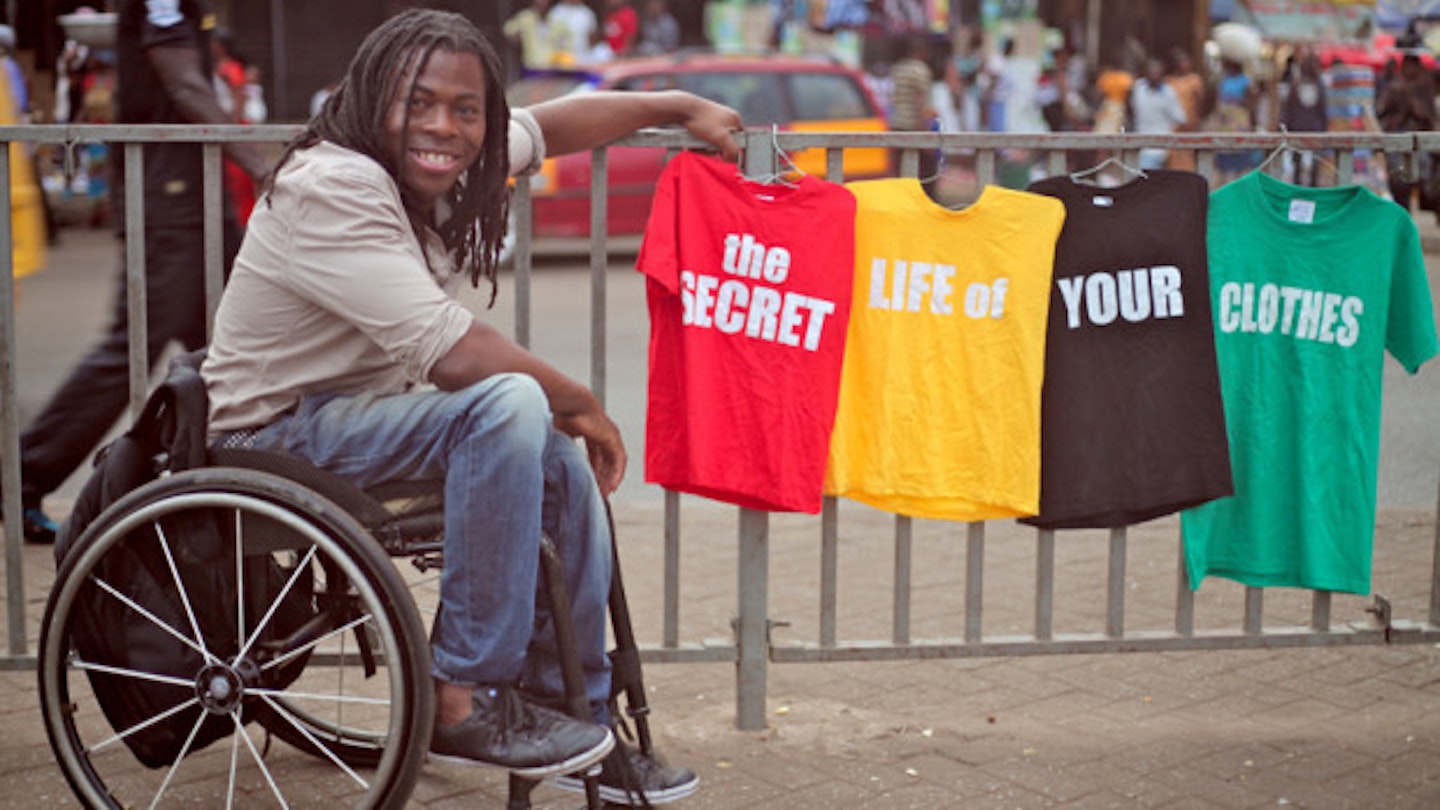When you drop off a bundle of unwanted clothes at the charity shop, you tend to assume they sit unloved on the shelves until they’re sold. But, it turns out, a massive amount of this discarded clothing never even makes it to the racks. Charity shops can’t deal with the amount of items that are donated, so any excess is sold to recyclers who, in turn, sell them abroad, often to Africa. The secondhand clothing industry in Ghana has exploded with tons of our unwanted clobber being imported from the UK. For his documentary The Secret Life of Your Clothes, Ade Adepitan has followed the trail of our cast-offs from Britain all the way to rural villages in Northern Ghana.
Did you have any idea that so many of our clothes were being sold abroad?
It was a big surprise to me what happened to our second hand clothes. I assumed that when I gave away my clothes to a charity shop, that was it. I didn’t realise there was this whole industry going on and the clothes were being sold onto Africa. And I didn’t realise that in Africa and especially Ghana, the clothes were consumed on such a large scale.
Do you think there’s a reason that this is not better known?
I think that as consumers it’s partly our fault. We don’t take the time to look into things. Do you ever think about any of the things that we buy? This is probably a result of the fact that we’ve got more stuff than we need.
Do you think perceptions of charity and charity shops and the way they operate would change if people knew this was happening?
The charities are making money for their causes which is a positive thing. What it highlights is this insatiable appetite that we have for disposable fashion. When you just look at Ghana alone and you just see bales and bales, a massive percentage of those clothes are our clothes. It certainly made me think about how many clothes I buy and why I buy so many. The thing that struck me is there’ll be a lot of people in the UK who complain about the money and the aid that we give to Africa. The irony is a lot of these poor countries are helping to fund a lot of our charities.
Does it affect the Ghanian perception of us?
The people in Ghana were shocked that we gave away these clothes for free to charity shops. I think their perception is the people in the UK take for granted what we have and they’re surprised we’re able to give away such good quality fashion. They see the clothes as a valuable commodity.
Did you get a feel for what was in demand over there?
It was labels that they’d heard of so Marks & Spencer, that’s a good solid brand, but the funny thing is it’s not just the label. There might be a pair of Calvin Klein jeans which someone had bought in the UK for £150 and they might have a little mark on them. In Ghana that would be regarded as poor quality and not as desirable. If they saw a pair of trousers from TK Maxx, they would go for them before the Calvin Klein ones if they were in better condition.
What was the most surprising thing you saw out there?
Wedding dresses. Someone spends thousands and thousands of pounds for a wedding dress then gives it away. There’s no point cluttering up your cupboards with stuff you won’t wear. But it did seem really surreal to be in a market in Kumasi which was selling all sorts of things: fruit, goats, sewing machines, shoes and these wedding dresses.
Did you see anything out there you were tempted to pick up and bring back?
[Laughs] Probably, but making this documentary made me readdress my connection to fashion. It made me think I’m a bit of an idiot. Why am I spending so much money on all these pairs of jeans? What’s the point in constantly changing and buying stuff? I felt I’d been caught in this fashion trap.
But if you get out of the fashion trap, then it would have a detrimental effect on the people in Ghana.
Maybe, but it might also encourage or help them rebuild their textile industry or their fashion industry. What they really need is better management so they can make their stuff for cheaper. This is a romantic sort of thought, but when we travel, part of the appeal is seeing and experiencing different cultures but you feel almost cheated if everyone’s wearing the same clothes.
This World: The Secret Life of Your Clothes can be seen on BBC Two, Monday 14th July at 9PM.
Follow Dale on Twitter @MontyBodkins
This article originally appeared on The Debrief.
